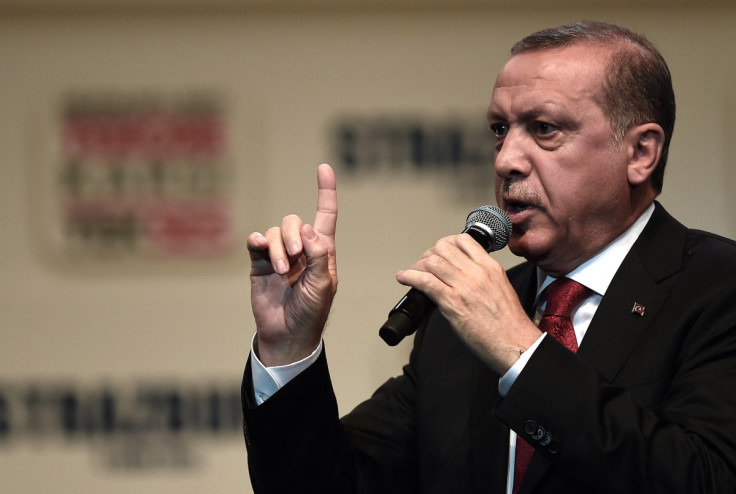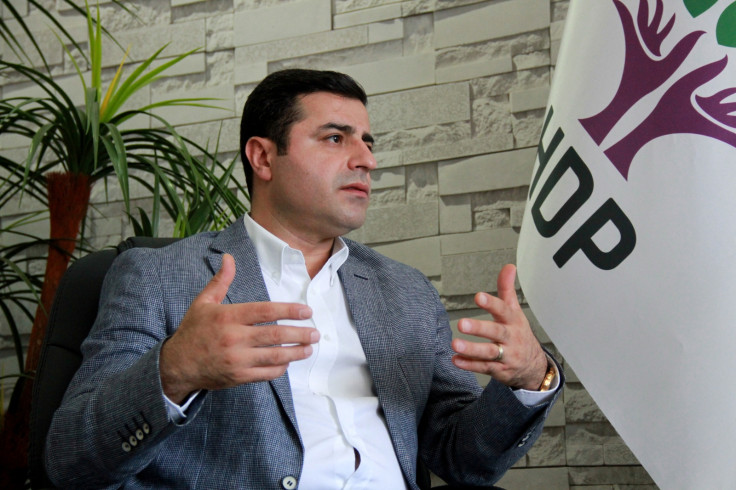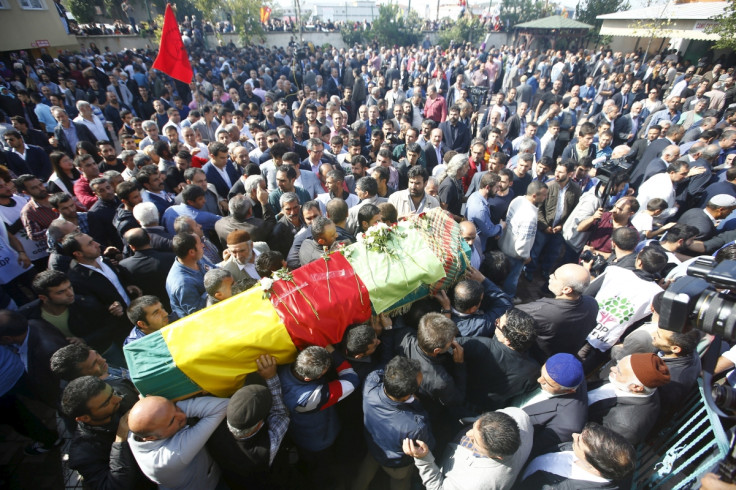Recep Erdogan emboldened as Kurds ditch Selahattin Demirtas and Turks put safety first

Turkeys' President Recep Tayyip Erdogan has played a good hand over the past six months. Even if the Turkish leader did not achieve the majority that he needed to grant himself US-style presidential powers, his Justice and Development Party (AKP) won almost 50% of the vote on Sunday (1 November), giving it around 317 seats in Turkey's 550-seat parliament.
Erdogan would have needed 330 seats in order to put constitutional changes to a referendum and 360 to put them to a parliamentary vote – he achieved neither, but the AKP's 9% jump in the total share of the vote compared to the June 7 elections will be seen as a significant victory for the controversial Turkish strongman.
It was not predicted, with polls ahead of the vote way off the mark. The expectation was that there would be a repeat of the results from June, when the AKP failed to secure a majority and, in the face of Erdogan's reluctance to go into coalition, launched a period of instability that led to new elections.
The gap between the polls and the results has led to speculation of vote rigging, with pictures on social media Sunday showing bags of what appear to be ballot papers being loaded into the back of a car. Also on Sunday, a delegation of election observers were arrested in Istanbul as they attempted to monitor voting.
In the run up to the poll it was reported that demonstrators had attacked pro-Kurdish People's Democracy Party (HDP) offices and opposition newspapers. The Independent cited a survey of state-owned TV channels that showed Erdogan and the AKP received 30 hours of coverage during October compared to five hours for the rival CHP (Republican People's Party) and just 18 minutes for the HDP.
But those accusations cannot mask a clear shift towards Erdogan and the AKP in recent weeks, said Ege Seckin, a Turkey analyst at IHS,: "Even if there was vote rigging it would not account for a 9% jump for the AKP. What we are seeing is a manifestation of what the electorate wants, more or less," he said.

Erdogan's Turkish delight
It is a far better position than Erdogan found himself in after the June 7 elections, when the top line was the Kurdish HDP taking 13% of the vote and entering parliament for the first time. The HDP took just over 10% in Sunday's poll, a disappointing result but one that still leaves them as the third largest party in terms of MPs.
The situation between Turkey and its Kurdish minority has not helped HDP leader Selahattin Demirtas.
Erdogan has shamelessly exploited the renewed conflict between the Turkish state and the Kurdistan Workers' Party (PKK) following the June elections, which has seen riots engulf southern Turkish cities and tit-for-tat killings by the army and militants.
The conflict has seen Demirtas struggle to represent both PKK supporters and militants – including his own brother, currently in exile in Iraqi Kurdistan – and has lost the support of religious Kurds that have rejected the tactics of the PKK and migrated instead towards the AKP.
"Contrary to what people are saying, they didn't lose votes from the Turkish liberals but from conservative Kurds that impacted the results," said Seckin.
The HDP is bowed but not beaten. Demirtas – known as the Kurdish Obama – has kept the HDP afloat and in parliament, in defiance of the 10% threshold designed to keep the Kurds out of the political realm.
Speaking on Sunday, Demirtas – who Erdogan has derided as a "pretty boy" – blamed the toxic atmosphere created by the war between the PKK and the Turkish state for a drop in their share of the vote.
The Isis effect
A series of brutal terrorist attacks in Turkey, including the suicide bombing at a peace rally in Ankara in October that killed 102, have had a mixed effect on Erdogan's electoral prospects. On the one hand they have likely persuaded security-minded Turks to opt for the perceived stable hand of the AKP, on the other they have highlighted how Erdogan's policies towards Islamic State (Isis) in Syria have made Turkey more dangerous.
Erdogan has responded to an increasingly active Islamist militancy on its southern border by bombing the PKK-aligned People's Protection Units (YPG), the only force currently mounting a serious campaign against IS and boasting a number of major victories over the militants, not least in Kobane.
He has opposed an YPG-controlled 'buffer zone' with Syria, fearing that it will further embolden Turkey's Kurds, despite the fact that it would help protect Turkey's porous border with its lawless neighbour.

Conflicting ideology
There will be those in Turkey that will welcome AKP single-party rule, not least Erdogan's significant support base amongst conservative Muslims, and an end to political impasse that has dominated the political landscape over the past six months. At the same time, optimists will hope that Erdogan will no longer need a conflict with the Kurds to bolster his security credentials - perhaps the AKP will relaunch the peace process with the PKK and bring an end to the current conflict in southern Turkey.
But others will be rightly concerned that an emboldened Erdogan will see the results as a new mandate to crackdown on dissent in Turkey.
"[The AKP] has been brazenly trying to turn Turkey into a police state, one where the opposition has no room to breathe and where religious and ethnic tensions deepen every day. It remains to be seen how well the AKP and Erdogan can actually govern a society as deeply divided as Turkey is now, and just how harshly they are prepared to treat opposition in the name of stability," Bahar Baser, a research fellow at Coventry University and Ahmet Erdi Öztürk a research assistant at University of Ljubljana, wrote on Monday.
It may be unsurprising that so many millions of Turks turned out to support Erdogan - three million more than at the June election, early counts suggested - as the country reels from one of the most bloody six month periods of its recent history.
But while his "me or chaos" campaign may have ultimately proven successful, Erdogan will now be expected to deliver the security he has promised. Even for as an astute game-player as the Turkish president, that could be a tall order.
© Copyright IBTimes 2025. All rights reserved.






















